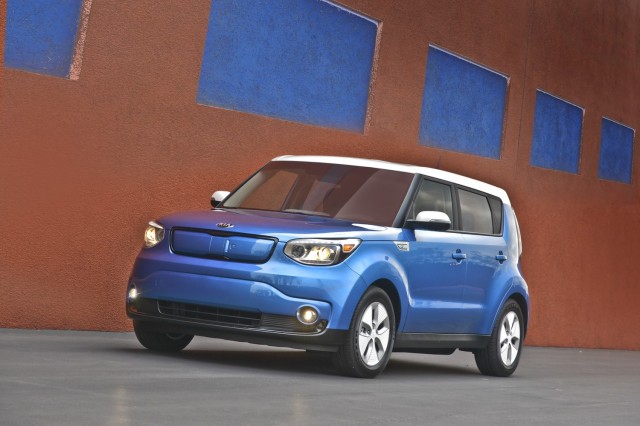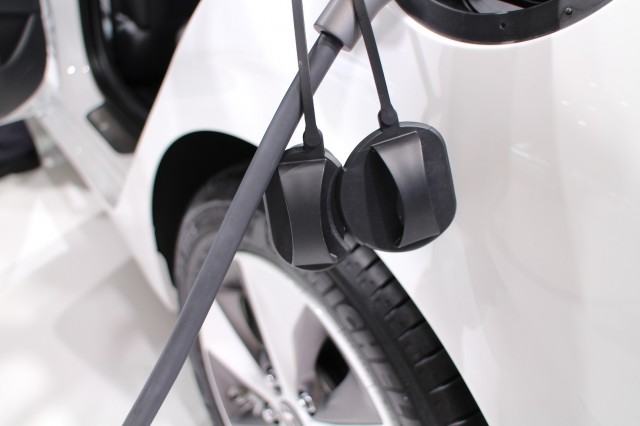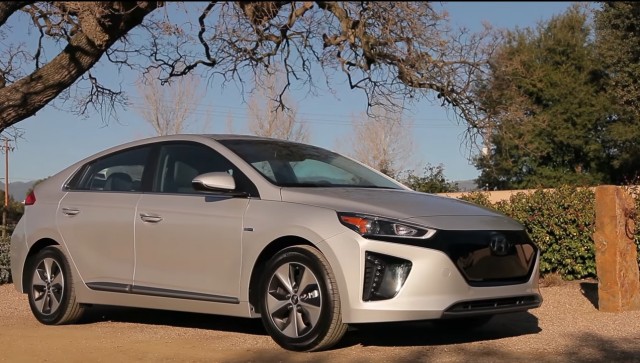It's long been said in the auto industry that Hyundai-Kia is the only competitor that truly scares industry colossus Toyota.
Thirty years ago, the Korean company was a bit player, producing designs adapted from obsolete Mitsubishi technology.
Today it's a major global player, reacting fast to market swings—and its goal is to be second only to Toyota itself in global production of green cars by 2020.
One more example of Hyundai's adaptation to changing market conditions came today in an announcement Thursday that it would place electric cars at the center of its future product strategy.
As part of that shift, it will expand its portfolio of battery-electric vehicles to newly independent luxury brand Genesis, which will get a long-range electric car to compete directly with Tesla as well as several future German electric models.
The new Hyundai electric car will be a luxury sedan to arrive in 2021, according to a Reuters report early Thursday that expanded on the Hyundai release.

2017 Kia Soul EV
The future Genesis competitor for the Tesla Model S may be the company's first "long range" electric vehicle (meaning 200 to 300 miles on a charge), but it won't be the last.
Before that, an all-electric Hyundai Kona subcompact crossover utility vehicle will launch next year, perhaps with a range of 125 to 200 miles.
The combined Hyundai and Kia brands have added three further models to their green-car lineup (hybrids, plug-in hybrids, battery electrics, and hydrogen fuel-cell vehicles), for a total of 31 separate vehicle versions by 2020.
In 2014, when Hyundai announced its plan to become the world's second-largest maker of green cars by 2020, just two of 22 planned models were to be pure battery-electrics.
Now, fully eight of the expanded roster of 31 cars will be all-electric, with the Hyundai Ioniq Electric and Kia Soul EV already in production jointed by the battery-powered Kona and an all-electric Kia Niro that may replace the Soul EV.
While Hyundai also released images of its future hydrogen-powered large crossover vehicle, which will be formally unveiled next year, only two of the planned 31 vehicles will use fuel cells.

2017 Hyundai Ioniq Electric (European spec), 2016 Geneva Motor Show
The company also confirmed earlier reports that it would create its first dedicated electric-car platform, a strategy so far only followed by General Motors (with its Bolt EV and future derivatives), Tesla, and arguably Nissan for its Leaf.
Some coverage of Hyundai's announcement has presented it as a strategic shift, but it can be more accurately viewed as an evolution and expansion of the company's green-car plans.
The Hyundai Ioniq Electric, launched over the last 12 months in several markets around the world, has proven more popular than expected, Hyundai says, leading to short supplies in several countries.
With 124 miles of EPA-rated range, the electric Ioniq combines a conventional and intuitive interior design with a high-tailed hatchback body that doesn't particularly read as either "green" or "electric."
That may be a winning combination, and Hyundai's use of its underpinnings for a conventional hybrid (the highest volume model by far) and a plug-in hybrid variant as well should provide economies of scale.
Hyundai is historically strong in value for money even as new generations of its cars and crossovers go from strength to strength, and the Ioniq may be viewed as a cost-effective alternative for buyers who dislike the latest Prius design.




No comments:
Post a Comment